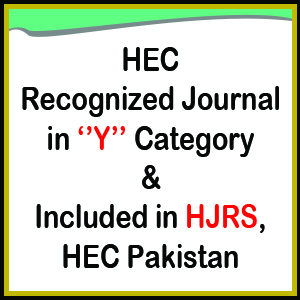Impacts of Oil Discovery on Households in Uganda: A CGE Analysis
DOI:
https://doi.org/10.26710/reads.v5i1.391Keywords:
Model, Nonrenewable Resources, Oil extraction, Oil export, Consumers’ welfareAbstract
This study analyses the impact of oil discovery on household poverty and inequality by employing a CGE model using 2007 SAM for Uganda. The oil production and export simulations show a decline in absolute poverty, poverty gaps and severity. Further, our findings showcase a positive effect of production and exports on household welfare, except for urban farm households. This study recommends for the managers of the economy to pay special attention towards injection of a reasonable portion of oil rent in sectors which positively contribute to the economy, diversify non-oil exports and above all, boost private consumption.
References
Acemoglu, D., Johnson, S. & Robinson, J. (2002). An african success story: Botswana. In Search of Prosperity: Analytic Narratives on Economic Growth. edited by Dani Rodrik, 80-119. Princeton: Princeton University Press.
Adedokun, A. J. (2012). Oil export and economic growth: Descriptive analysis and empirical evidence from Nigeria. Pakistan Journal of Social Sciences, 9(1), 46-58.
Bevan, D., Collier, P., & Gunning, J. W. (1999). The political economy of poverty, equity and growth: Nigeria and Indonesia. The political economy of poverty, equity and growth: Nigeria and Indonesia.
Caselli, F., & Michaels, G. (2013). Do oil windfalls improve living standards? Evidence from Brazil. American Economic Journal: Applied Economics, 5(1), 208-238.
Davies, J. M., Kingston, P. F., & Cairns, W. J. (Ed.). (1992). Sources of environmental disturbance associated with offshore oil and gas developments. United Kingdom: Elsevier Applied Science.
Easterly, W., Islam, R., & Stiglitz, J. E. (2001). Shaken and stirred: explaining growth volatility. Paper presented at the Annual World Bank conference on development economics.
Gelb, A. (1988). Oil Windfalls: Blessing or Curse Oxford University Press. New York.
Haughton, J. & Khandker, S. R. (2009). Handbook on poverty and inequality: World Bank Publications.
Heidarian, J., & Green, R. D. (1989). The impact of oil-export dependency on a developing country: The case of Algeria. Energy economics, 11(4), 247-261.
Hicks, J. (1939). Value and Capital: An Inquiry Into Some Fundamental Principles of Economic Theory.[Mit Schaubildern und Einem Mathematischen Anhang]: Clarendon Press.
Hirsch, R. L., Bezdek, R. M., & Wendling, R. M. (2005). Peaking of world oil production: impacts, mitigation, & risk management. Available at https://ecommons.cornell.edu/bitstream/handle/1813/692/hirsch0502.pdf?sequence=1&isAllowed=y
Holland, S. P. (2008). Modeling peak oil. The Energy Journal, 61-79.
Idemudia, U. (2009). Oil extraction and poverty reduction in the Niger Delta: a critical examination of partnership initiatives. Journal of Business Ethics, 90 (1), 91-116.
Ikelegbe, A. (2005). Engendering civil society: Oil, women groups and resource conflicts in the Niger Delta region of Nigeria. The Journal of Modern African Studies, 43 (2), 241-270.
Junior, E. O. (2015). Analysis of oil export and corruption in Nigeria economy. International Journal of Economics, Commerce and Management, 3, 112-135.
Kamugisha, J. R. (1993). Management of Natural resources and Environment in Uganda: Regional Soil Conservation Unit, Swedish International Development Authority.
Karamelikli, H., Akalin, G. & Arslan, U. (2017). Oil exports and non-oil exports: Dutch disease effects in the Organization of Petroleum Exporting Countries (OPEC). Journal of Economic Studies, 44 (4), 540-551.
Karl, T. L. (1999). The perils of the petro-state: reflections on the paradox of plenty. Journal of International Affairs, 31-48.
Lofgren. H., Harris, R. L. & Robinson, S. (2002). A standard computable general equilibrium (CGE) model in GAMS (Vol. 5): International Food Policy Research Institute.
Moradi, M. A. (2009). Oil resource abundance, economic growth and income distribution in Iran. Paper presented at the the Proceedings of International Conference on Policy Modeling, Ottawa, Canada.
Murshed, S. M. (1997). Macroeconomics for open economies: Cengage Learning EMEA.
Musisi, F. (2018). Uganda’s slow pace towards oil production. Daily Monitor. Available at http://www.monitor.co.ug/Business/Prosper/Uganda-slow-pace-towards-oil-production/688616-4594748-format-xhtml-xqd9oyz/index.html
O'Rourke, D., & Connolly, S. (2003). Just oil? The distribution of environmental and social impacts of oil production and consumption. Annual Review of Environment and Resources, 28 (1), 587-617.
Olarreaga, M., Kee, H. L., & Nicita, A. (2004). Estimating Import Demand and Export Supply Elasticities. Paper presented at the Econometric Society, North American Summer Meetings.
Parvin, Hosseini S. M., & Tang, C. F. (2014). The effects of oil and non-oil exports on economic growth: a case study of the Iranian economy. Economic research-Ekonomska istraživanja, 27 (1), 427-441.
Peter, S. G. (2010). The Impact of Oil Export Earnings on Nigeria's External Debt. USAEE Working Paper No. 10-038.
Rodrick, D. (2003). Introduction: What do We Learn from Country Narratives. In Search of Prosperity: Analytic Narratives on Economic Growth, Princeton University Press, Princeton and Oxford.
Ross, M. L. (2001). Extractive sectors and the poor. An Oxfam America Report.
Sachs, J. D. & Warner, A. M. (1995). Natural resource abundance and economic growth. NBER Working Papers 5398, National Bureau of Economic Research, Inc.
Sachs, J. D. & Warner, A. M. (2001). The curse of natural resources. European economic review, 45 (4-6), 827-838.
Sala-i-Martin, X., & Subramanian, A. (2013). Addressing the natural resource curse: an illustration from Nigeria. Journal of African Economies, 22 (4), 570-615.
Stevens, P. (2003). Resource impact: a curse or a blessing? Investment Policy, 22 (5.6).
Stilwell, L. (2009). Mineral endowments and developing economies. Paper presented at the The Southern African Institute of Mining and Metallurgy Base Metals Conference.
Thurlow, J. (2008). A 2007 social accounting matrix for Uganda. Washington (DC): International Food Policy Research Institute.
UBOS, (2013). Statistical Abstract Kampala - Uganda: Uganda Bureau of Statistics.
Vokes, R. (2012). The politics of oil in Uganda. African Affairs, 111(443): 303-314.
Yates, D. (2009). Enhancing the governance of Africa’s oil sector. Occasional Paper No 51, Governance of Africa’s Resources Programme, SAIIA, South Africa.









